The minimalist kitchen is a growing trend that combines simplicity, functionality, and a clean aesthetic to create an inviting yet efficient space. This design philosophy emphasizes the removal of excess, focusing on streamlined, clutter-free environments that still meet the needs of modern living. In this article, we’ll explore various aspects of creating a minimalist kitchen, from cabinetry choices to color schemes, and how you can adopt this stylish yet functional approach in your home. Each section will guide you through a key component of minimalist kitchen design, helping you achieve a space that is both beautiful and practical.
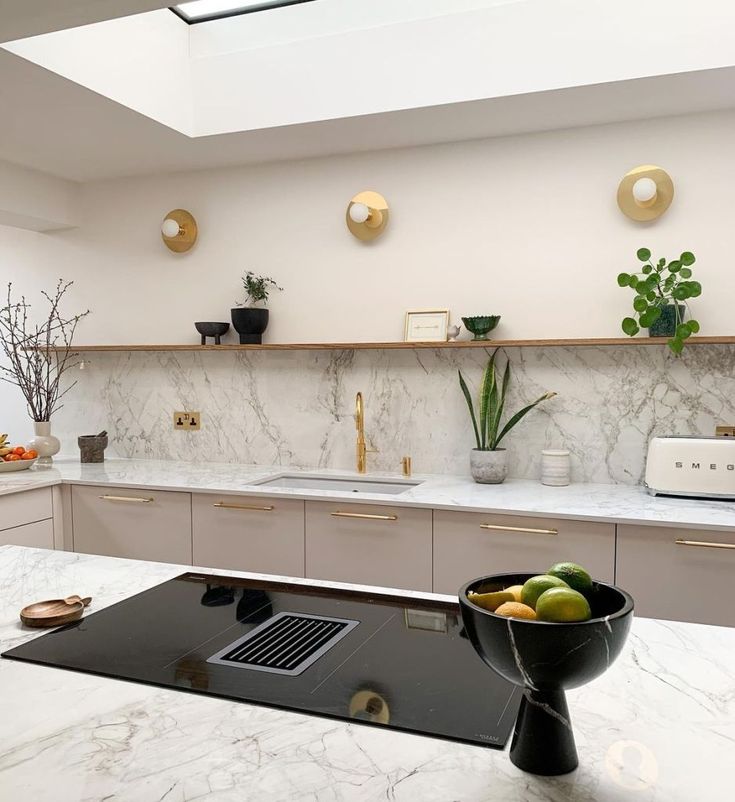
1. Minimalist Cabinetry Choices: In a minimalist kitchen, cabinetry plays a crucial role in achieving a streamlined look. Opt for handle-less cabinets, flat-front doors, and sleek finishes like matte black or white to maintain clean lines. Open shelving can be incorporated to display carefully curated kitchenware, but be mindful not to clutter the space. Minimalism isn’t about bare cabinets, but about thoughtful storage solutions that prioritize functionality while maintaining an understated appearance.
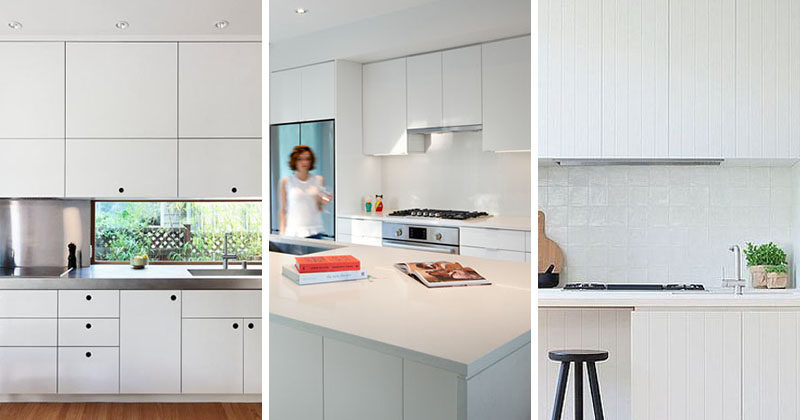
2. Neutral Color Schemes: Color is a key element in any minimalist kitchen design. Neutral shades such as white, beige, soft gray, or muted pastels dominate the palette, creating a calm and serene atmosphere. These colors enhance the feeling of space and light, helping small kitchens feel larger and more open. Adding subtle textures through backsplashes or countertops can prevent the space from feeling too stark while maintaining the clean aesthetic.
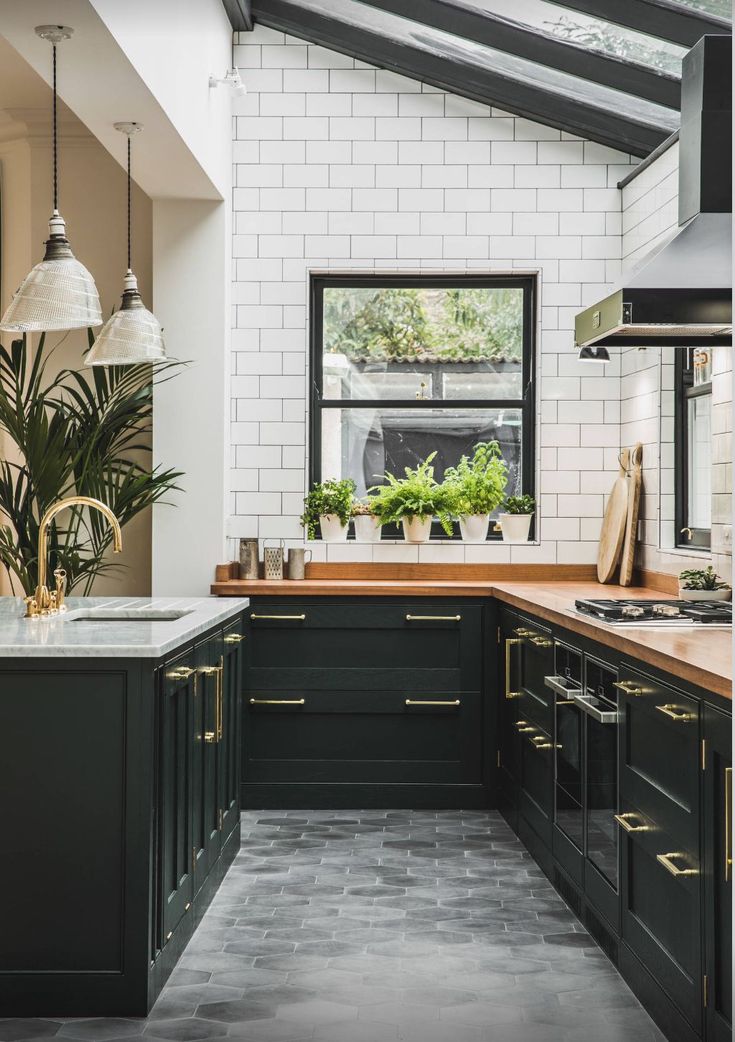
3. Streamlined Appliances: Appliances in a minimalist kitchen should be as sleek and unobtrusive as possible. Choose built-in or integrated appliances that blend seamlessly into cabinetry. Stainless steel and black finishes are popular choices that add a modern touch without overpowering the design. Keep countertop appliances like toasters and mixers stored away to reduce visual clutter and keep surfaces clean.
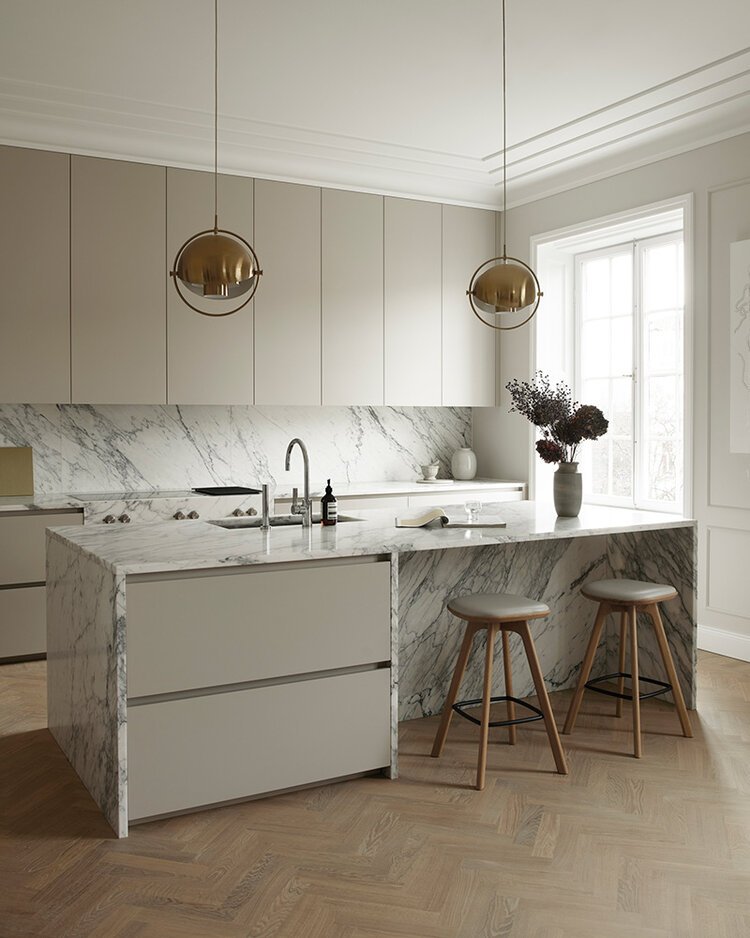
4. Decluttered Countertops: A hallmark of minimalist kitchen design is clutter-free countertops. Clear counters not only contribute to the visual appeal but also improve functionality. Limit the number of items displayed, keeping only essentials like a coffee maker or a few decorative pieces like a stylish bowl. This simplicity encourages a sense of calm and order, which is essential for a minimalist space.
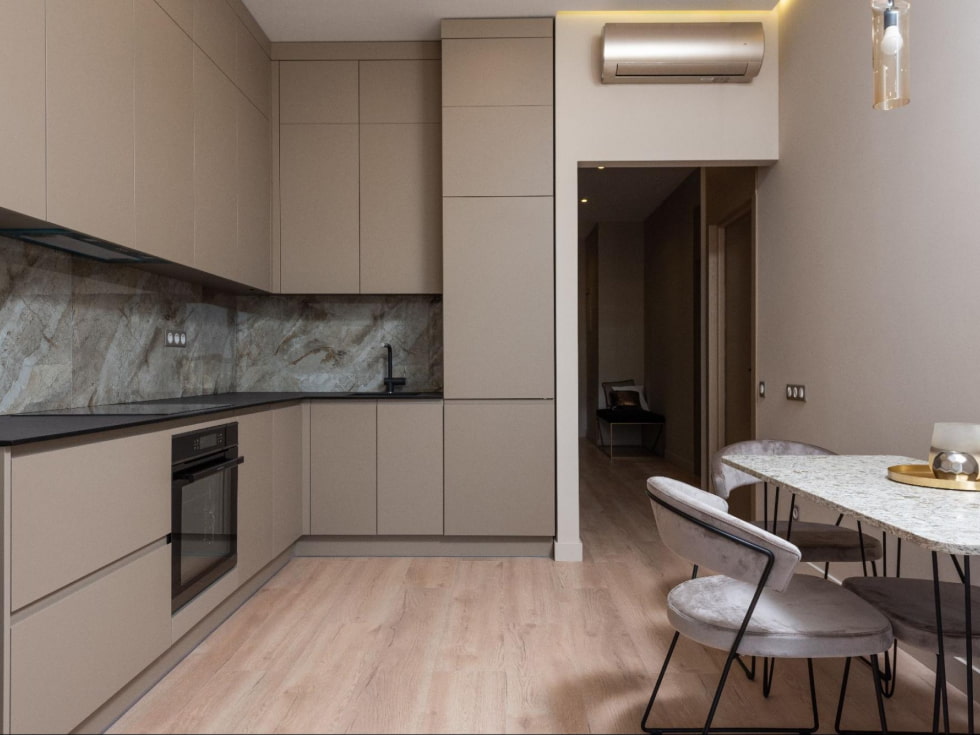
5. Efficient Use of Space: Maximizing space is vital in a minimalist kitchen, particularly in smaller homes. Clever storage solutions, such as pull-out drawers, corner cabinets, and overhead shelves, help ensure that everything has a place. This approach not only creates a more functional kitchen but also contributes to the minimalist ethos of "less is more" by eliminating unnecessary clutter and making the most of available space.
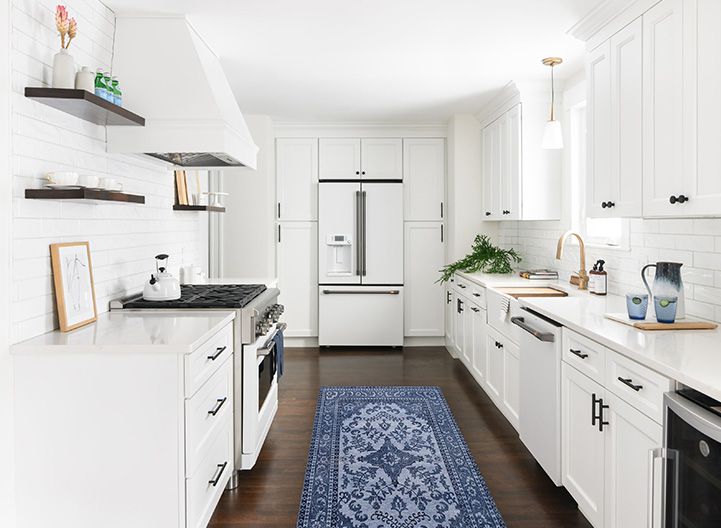
6. Lighting in Minimalist Kitchens: Lighting is essential to highlight the simplicity of a minimalist kitchen. Natural light is the best option, but if that's limited, consider recessed lighting, pendant lights, or under-cabinet lighting. These fixtures should complement the minimalist design with clean lines and understated finishes. Avoid ornate designs and instead choose lighting that enhances the simplicity and functionality of the space.
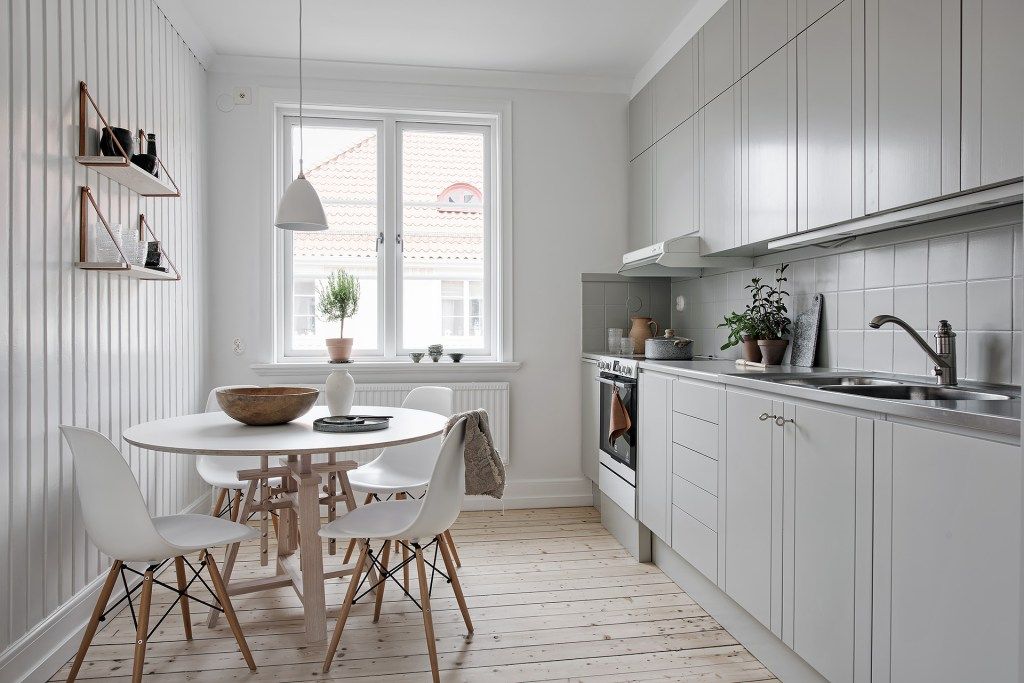
7. Multi-Functional Furniture: Incorporating multi-functional furniture is another way to maintain minimalism. A kitchen island with built-in storage or a dining table that doubles as prep space can help reduce the number of separate furniture pieces needed. This not only keeps the kitchen looking clean but also enhances the practicality of the space, allowing you to do more with less.
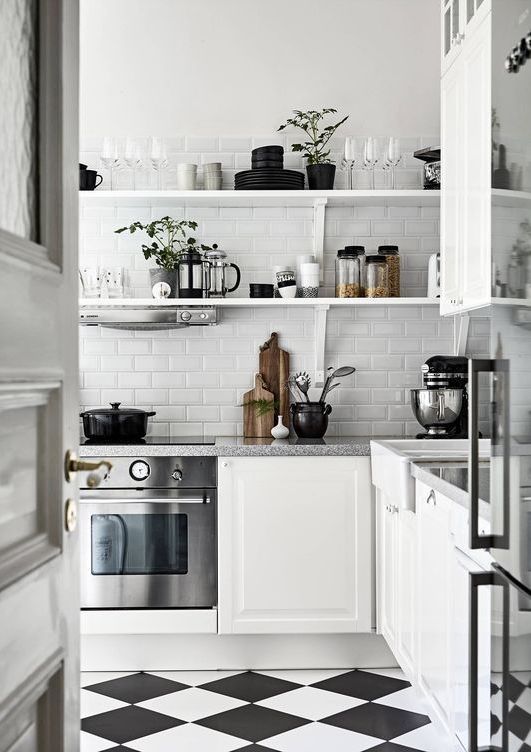
8. Sustainable and Eco-Friendly Materials: Many minimalist kitchens prioritize sustainability by using eco-friendly materials like bamboo, recycled wood, or energy-efficient appliances. These materials not only support the minimalist focus on simplicity and quality but also align with the environmentally conscious values often associated with minimalism. Incorporating these elements can elevate your kitchen's design while promoting sustainability.
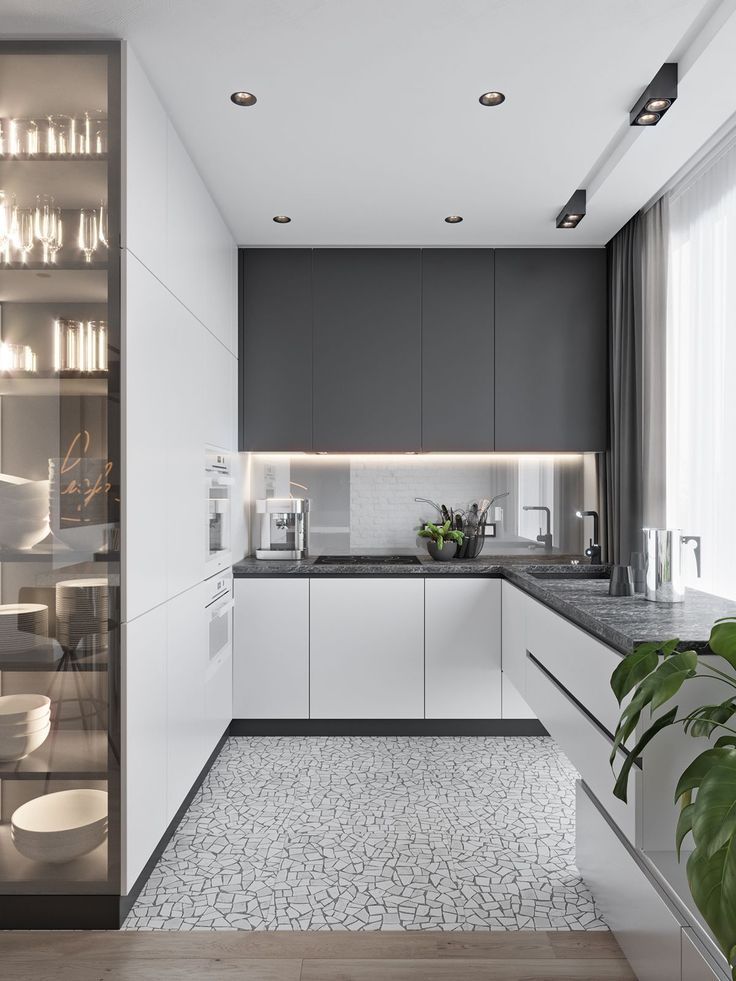
9. Minimalist Decor and Accessories: In a minimalist kitchen, decor should be kept to a minimum, but that doesn't mean sacrificing style. Choose a few impactful pieces, such as a statement light fixture or a piece of art, to enhance the space without overwhelming it. Decorative accessories like wooden cutting boards or ceramic bowls can also serve a dual purpose, providing both functionality and a subtle design element.




